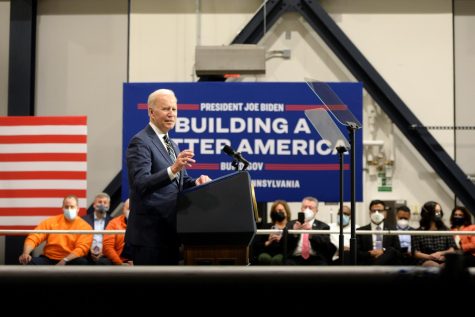Editorial: Health care, don’t care: Will HealthCare.gov work?
October 28, 2013
In a law that has little precedent, the rollout of the Affordable Care Act’s online marketplace was bound to have a few glitches. What we have now, however, is a website that embodies a concern a growing number of Americans exemplified in the original passage of the law: Is this thing really going to work?
The glitches in HealthCare.gov show a serious lack of consideration by the current administration to the weight of creating an online forum where millions of Americans have the ability to sign up for universal health care, an unacceptable development for a program that has drawn ire from both Republicans and Democrats.
For one, the website was activated before the government and contractors were able to fully test the system. Going live on Oct. 1, the website clearly was an unfinished product. And that’s not even the worst of it.
The Centers for Medicare and Medicaid Services, the federal agency in charge of the marketplace, was chosen to ensure that the databases and software of 55 contractors were integrated seamlessly. For the record, the delegation of such duties to a federal agency, especially an agency like the Centers for Medicine and Medicaid Services, is entirely uncommon. Individuals involved in the role disclosed that the agency neither had the expertise to complete the job, nor did they even understand thoroughly what to do.
So not only did the administration delegate responsibilities to unqualified personnel, but the premature release of the website reeks of embarrassment.
The lack of thought put into the formulation of the online marketplace raises the concerns of whether enough deliberation occurred in the formulation of the actual law and its implications for millions of Americans.
The Obama administration needs to seek alternative measures for having Americans nationwide enroll in the health care initiative immediately. In line with Obama’s recent call for patrons to sign up for insurance via mail or phone, the administration has to begin major efforts to notify the public of alternative measures.
Another measure would be to direct individuals to sign up for health insurance via websites their home state administers. Those websites, which have proven to be relatively more efficient, attract less traffic than the national website, which typically make them les likely to crash and thereby helping individuals avoid the penalties for not signing up for insurance.
The website needs fixing, that’s for sure. But the current administration needs to put into action secondary options to salvage any sort of optimism Americans feel toward universally obtaining health insurance.







